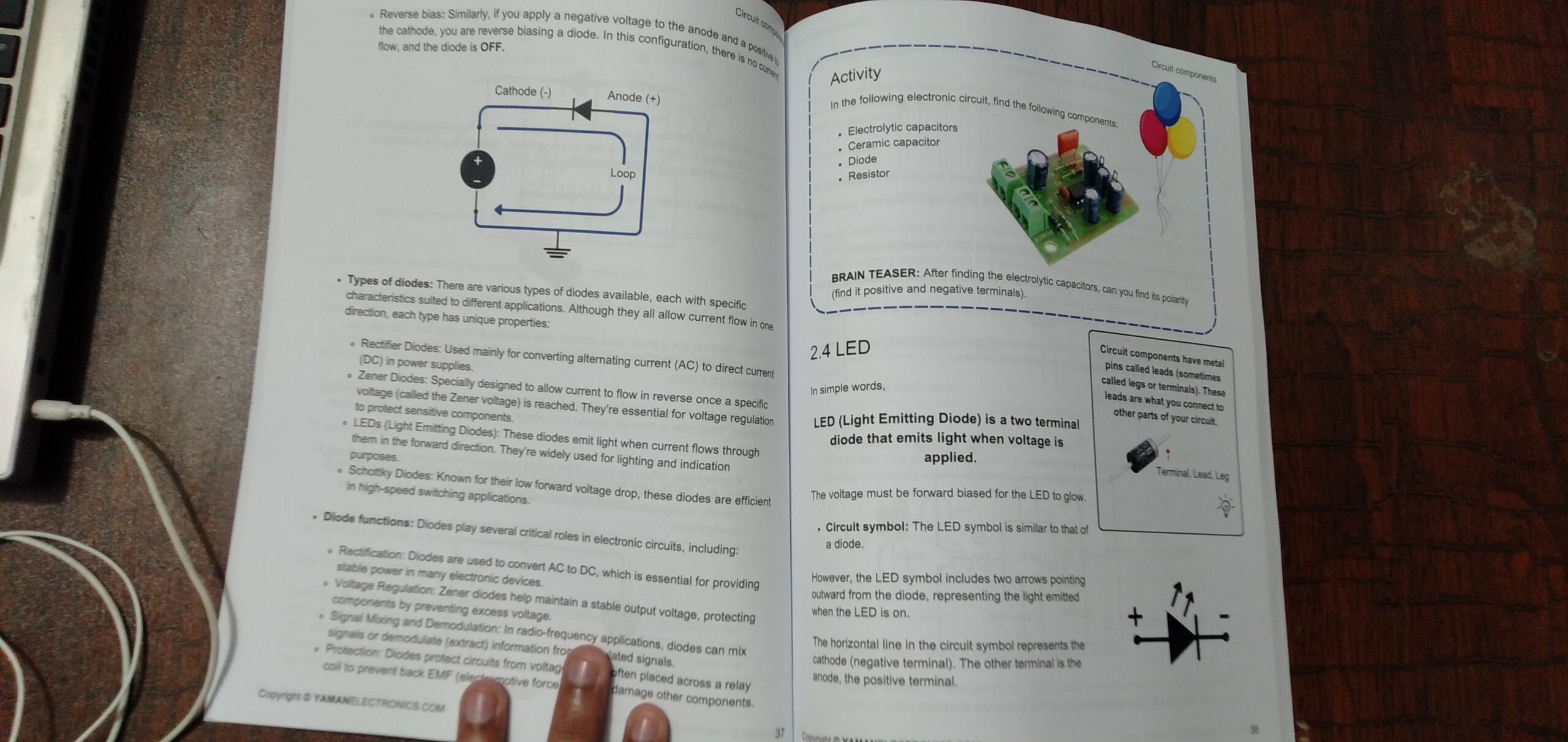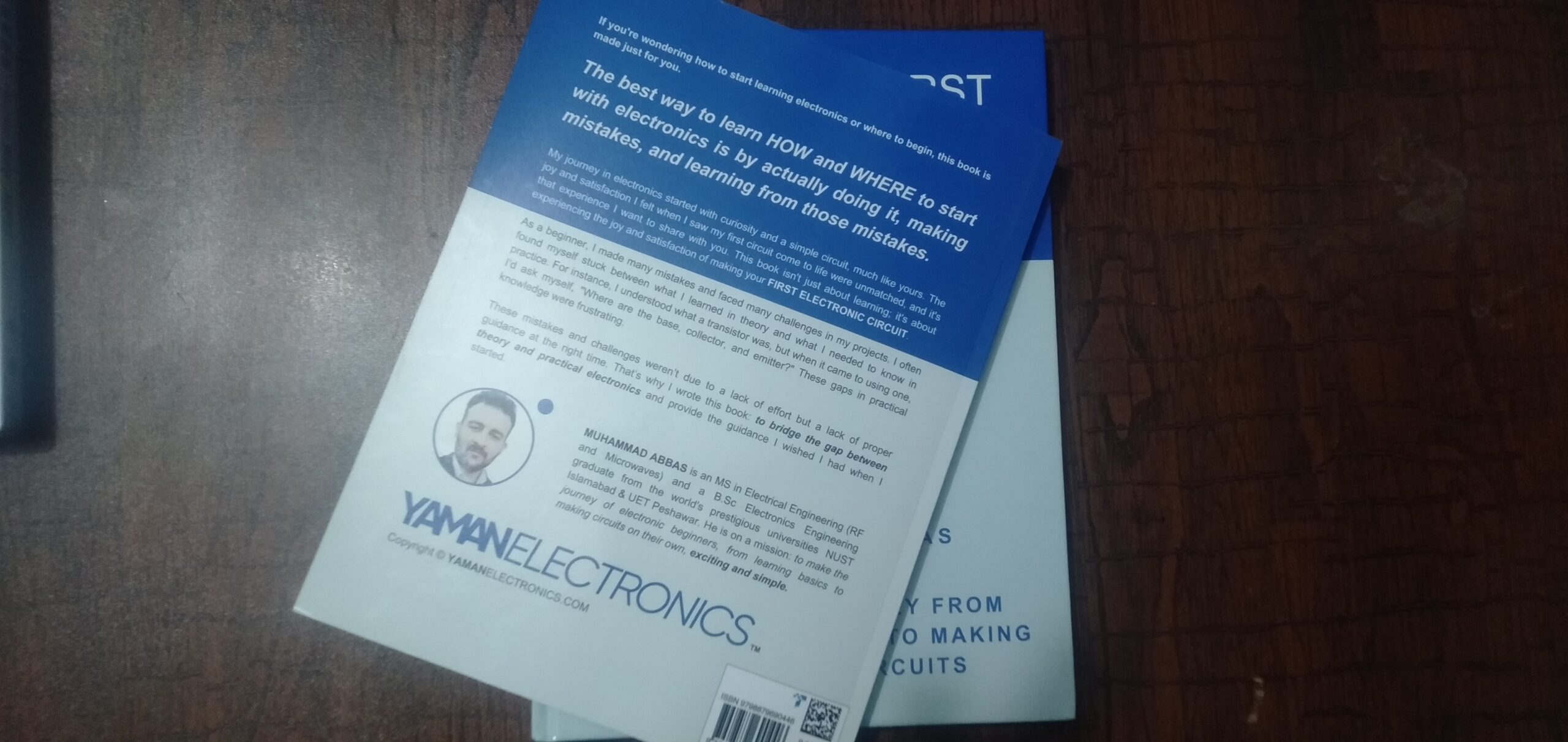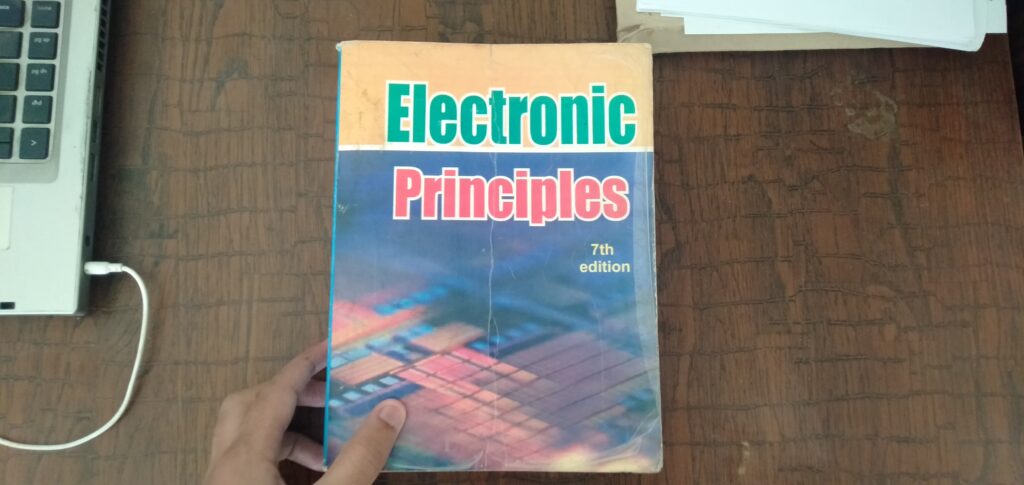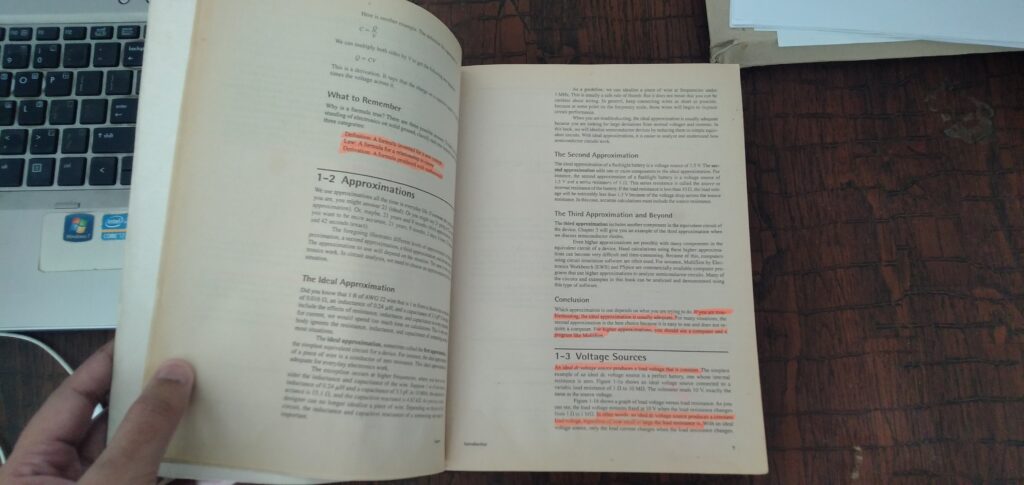7 Best Basic Electronics Books for beginners (2025)
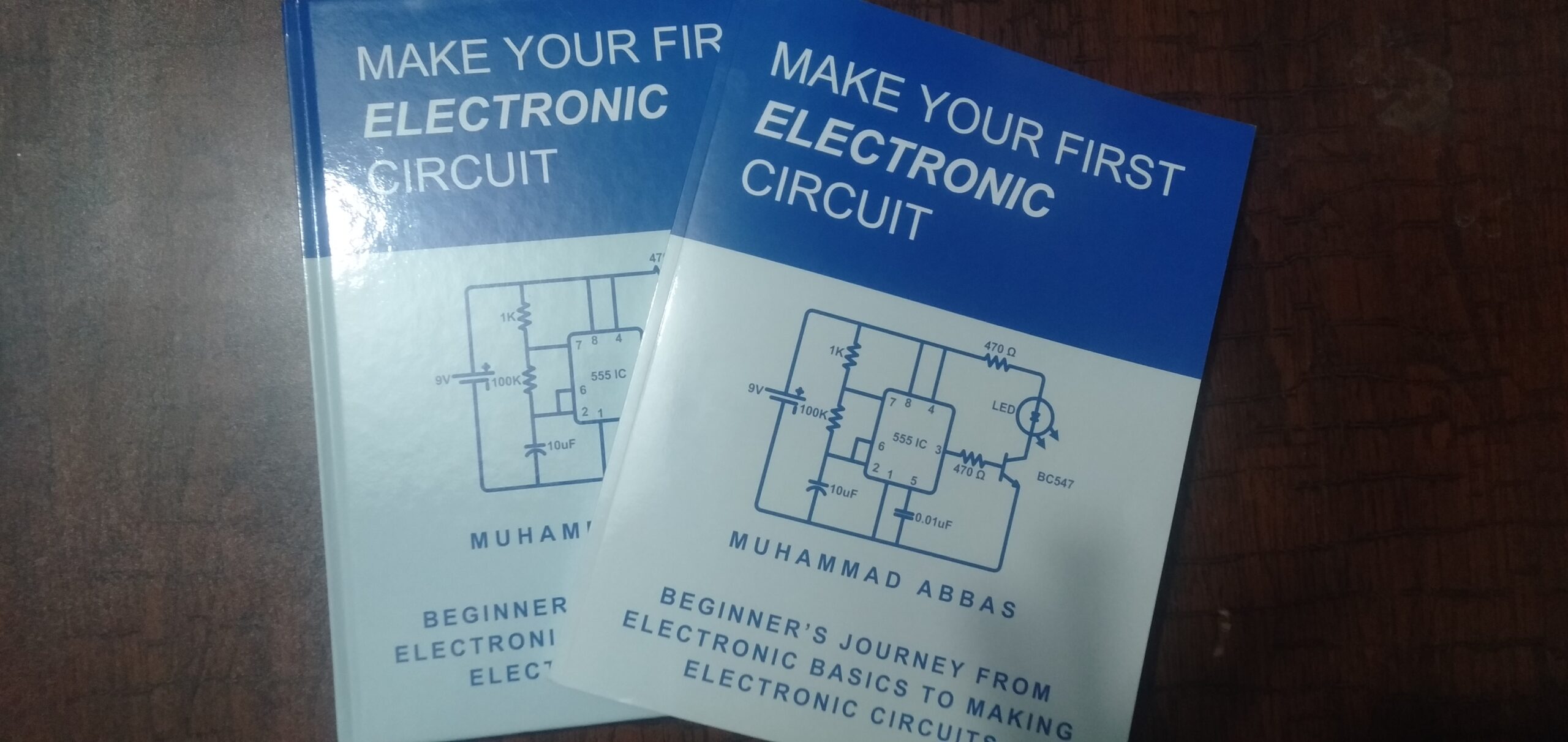
There are many useful resources you can use to learn electronics. The traditional and forever green way is to grab some best basic electronics books, and start reading.
Every book is great. If I say this book is better than the other. It would mean I know nothing about books. Each and every book I am gonna talk about in this article is best in its own space. Each book is well written, keeping in mind the different kinds of people and readers.
If you are a theory guy you will have your taste, if you are a practice guy you will your own. Hopefully, you will enjoy all the listed books, as I did.
Beginner electronics books
Here is my checklist, which I think a book must have if it is intended for an electronics beginner.
- Simplicity in language and concepts: Beginners need books that break down complex topics into simple, easy-to-understand language.
- Practical approach over theory: Books that combine theory with hands-on activities are excellent for beginners. Practical projects help solidify concepts and allow readers to see the real-world application of what they’ve learned.
By keeping these points in mind, you can select a book that not only suits your learning style but also makes your journey into electronics exciting and rewarding! Following is my list that I think best for beginners.
1. Getting Started in Electronics
- Best for hobbyists and beginners who like handwritten book
This book is written by Forrest M. Mims, III, who has written dozens of books and hundreds of articles, invented scientific devices, and traveled to the Amazon for NASA.
This book talks about the basics of electronics in a way you will find hard to find anywhere else. The author, Forrest Mims, has a unique way of teaching and delivering the concept which a reader can feel while reading this book.
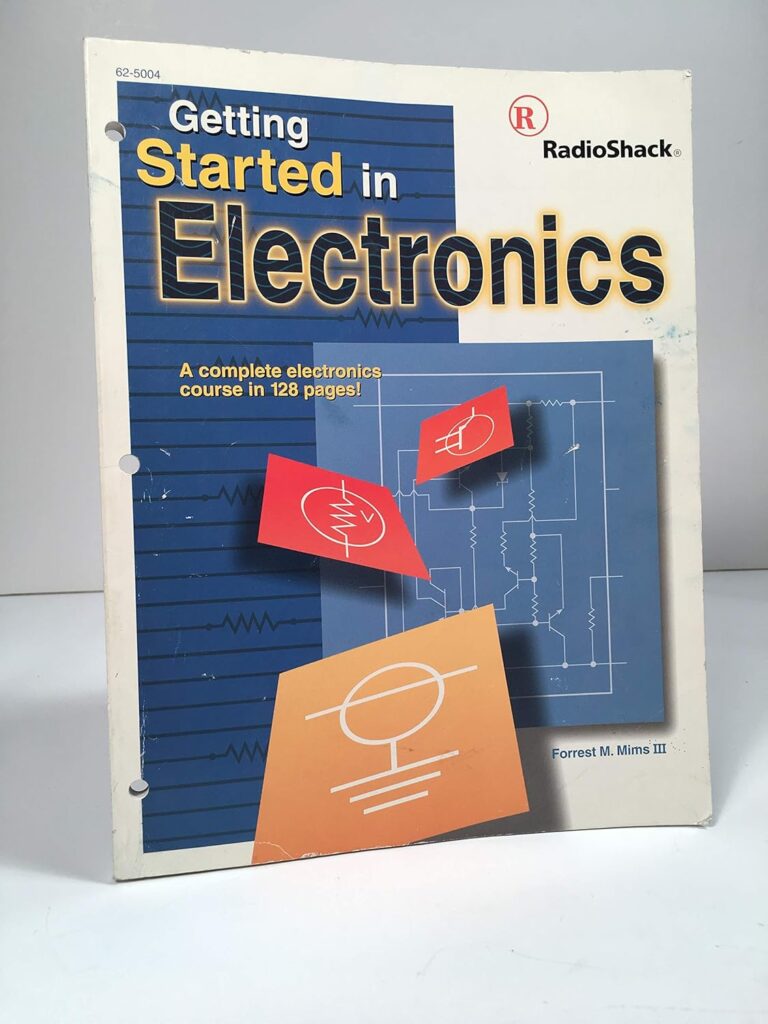
The book starts with the basics of electronics, later talks about analog and digital electronics and components, explains how each component works, how components get together and make circuits for various applications.
Besides the theory, there is a lot of practical stuff to do. I love doing electronics, as for me theory without practical electronics is not complete. And this book includes circuit assembly tips and 100 electronic circuits and projects you can build and test.
You get to make 100 unique circuits all by yourself. The circuits are purely based on the knowledge you learn in the book so don’t worry about any complications and confusion.
If you are interested in this book and want to know more about it, check out this link, Getting started in electronics (Amazon link). In my opinion, you will enjoy reading this handwritten book a lot.
2. Make Your First Electronic Circuit
- Best for complete beginners who don’t know where to start electronics and want to make circuits on breadbaord
This is my own book, which I am very proud of. I don’t believe that one day, a guy from a small village will be able to write a book. I am thankful to God.
I have read so many academic electronics books and reference books throughout my university time. Some I hated and some I still use today. These books were amazing, but I always felt like why there are 300 600 pages and ton of theory. Why not just someone take my hand and teach me how to make simple circuits while teach me what is going on.
That’s why I decide to write one for myself. And that is how Make Your First Electronic Circuit come to existence. It’s short and don’t confuse a beginner more who is already confused.
The book is different from the other book because:
- It uses hands on approach: I believe the best way to learn electronics is by actually doing electronics.
The book starts with a simple circuit and walk a reader all through from basics to making electronic circuit. It is like a journey of five chapters. Each chapter brings joy knowledge and satisfaction of learning something new.
- Step by step instructions: I know it is not easy to connect all the dots your self when you are getting started with electronics.
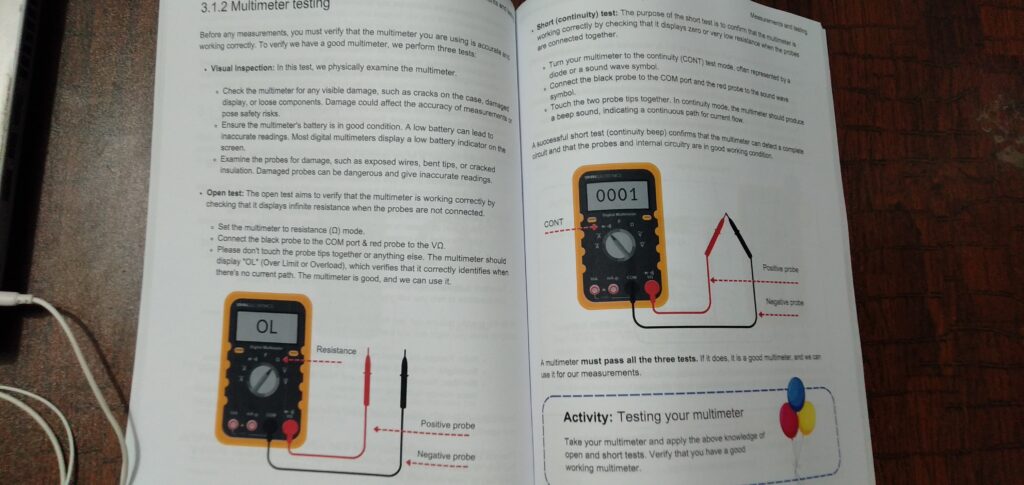
That’s why the book uses a step by step instruction style. It doesn’t confuse or overwhelmed the reader. You will feel like someone is walking you through holding your hands.
In summary, Make Your First Electronic Circuit (Amazon link) is for beginners who are wondering how and where to start with electronics and no prior experience is needed — just a willingness to learn.
3. Make Electronics: Learning Through Discovery
- Best for DIY beginners
This is another best book from Make magazine for learning basic electronics. As the name suggests, there is a lot of practical work involved. In this book, you not only learn the theory but also get your hands dirty with some basic electronics.
The author says, Make: Electronics is the book that I wish I had owned when I was a young teenager, struggling to learn the basics of electricity and electronics. My goal is to give readers today an easier learning experience than the one I had to go through. And I want it to be fun.
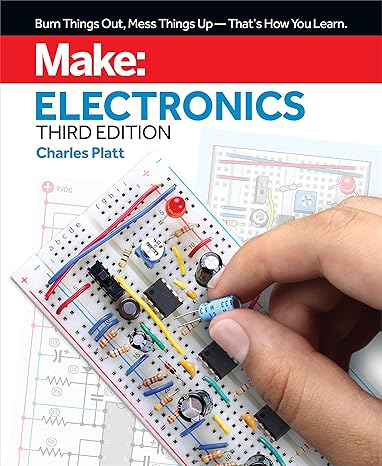
Everything is represented with beautiful illustrations and diagrams which the reader will enjoy while reading it.
The book starts with basic electronics concepts, then goes to some advanced topics such as working with integrated circuits. But don’t worry, everything is explained in a very easy way.
Talks about different techniques while you are playing with electronics. Such as soldering, the book teaches how to solder well, how to differentiate between a good and bad soldering wire, and a lot of more fun stuff.
This book is the best starting point for everyone into electronics, no matter if you are a student or hobbyist, you will find great value in this book. If you are interested in this book and want to know more about it, check out this link, Make electronics by Charles Platt (Amazon link).
4. The Art of Electronics
- Best for intermediate beginners
A truly remarkable book written by Paul Horowitz, a Research Professor of Physics and of Electrical Engineering at Harvard University, wherein 1974 he originated the Laboratory Electronics course from which emerged The Art of Electronics, and Winfield Hill is by inclination an electronics circuit-design guru.

This book needs no introduction. A remarkable gift for engineers as well as hobbyists. The book will teach you almost everything you need to know as a beginner. It will lead you from basic concepts to more complex and advanced topics.
The book deals with real-life situations, no ideal assumptions. For example, no ideal assumptions are taken while analyzing the circuits. Usually, books take an ideal assumption like there is no loss in the circuit to make the mathematics easy, and when you actually design the circuits, results are a little different.
At the start, the book deals with analog circuit designs and later moves to the basics of digital electronics. So, the reader gets the taste of both analog and digital electronics.
I personally love this book. The reason I am listing it at three because I think it is a little advance for complete beginners.
To know more about this amazing book, here is the Amazon link, The Art of Electronics. If you are interested, give it a try. It is a little expensive but the money worth it.
5. Electronic Devices
- Best for engineering students and beginners
This book is written by Thomas Floyd and one of the amazing book out there to learn about electronics. I read this book like 100 times. The first time I didn’t get it 😀 But it is amazing. I read this book through my university time and everytime I read it I get more clearity.
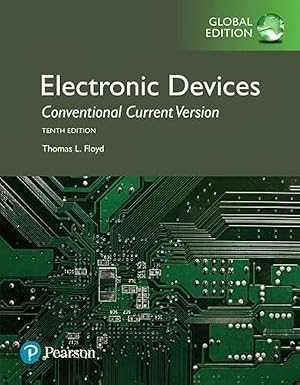
The book starts with an introduction to electronics and goes up to operation amplifiers, oscillators, and voltage regulators.
At the end of each chapter, there is a project section. Where a reader designs a project based on the chapter topics, which is amazing. The complexity of projects increases as you gain more knownlege and read more chapters.
Well, this book (Electronic devices Amazon link) is for those who really want to dig deep into electronics and have an engineering mindset. No doubt it is beginnerly friendly but it is very detailed book.
6. Arduino Cookbook
- Best for beginners, enginnering students, and hobbiysts who want to enjoy embedded projects
Arduino is a board that helps us make useful electronic projects. These projects are fun and engaging which I belive can insfire a lot of beginners.
Getting started with Arduino is not something anyone would recommend from day one, but you know why not? Instead of starting with electronics the traditional way, why not go ahead and start with someplace challenging? Because Arduino is a whole new field of electronics and it demand is increasing day by day.
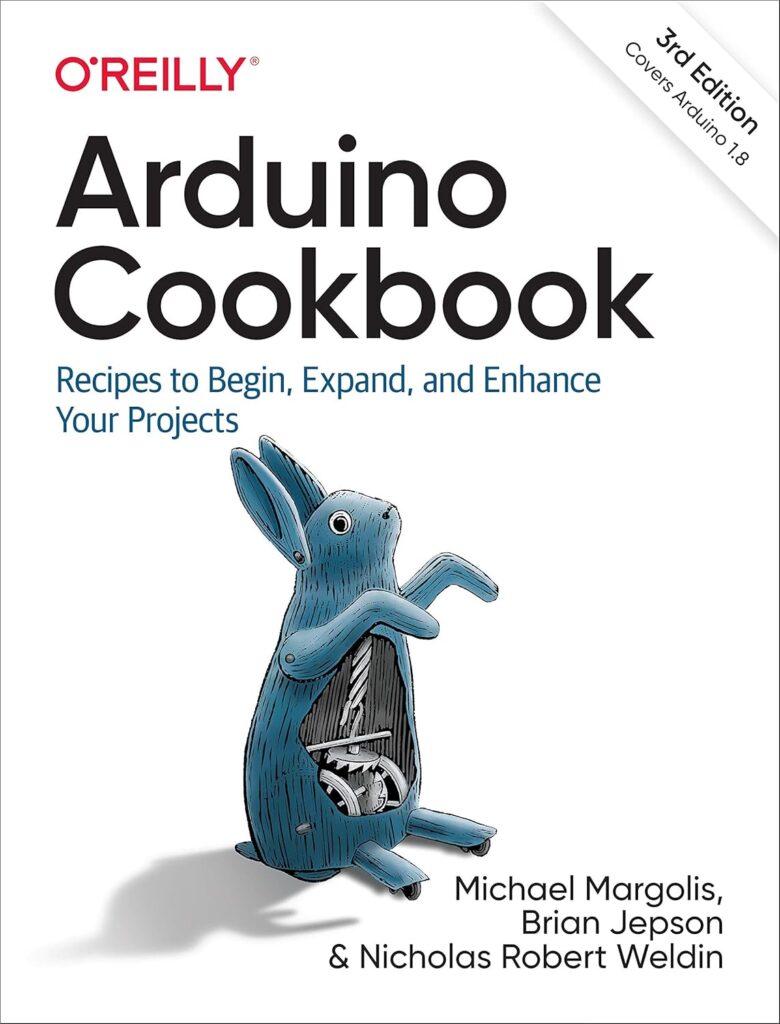
This book is a step by step introduction to Arduino. It starts by helping you set up the IDE environment to make embedded projects fully.
A beginner start with coding the Ardunio baord, run some mathematical operations. Don’t worry, programming Ardunio is way too easy. I believe you will get it in just one week’s time, it is that easy and simple.
You can read its detail table of content here on it Arduino Cookbook Amazon page.
7. Electronic Principles
- Best for beginners who want to develop deep understanding of electronic concepts
This is my favorite book written by Albert Malvino, David, and Patrick. But it is famous by the name Malvino electronics book. This book start with basic concepts and goes to advanced topics gradually.
I read this book like so many times. Every time I learn something new and insightful.
Here is the detail page, Electronic Principles (Amazon link), if you want to learn more about it.
Conclusion
Every book is great. Every basic electronics book is awesome, get any book and you will learn all the basic concepts. If I say that the book is great, it is just my opinion. Maybe for other people, it is not.
You have so many choices. Above are the books that have proven themselves among different people, and people found them effective. I read them myself and found them amazing.
Above listed books teach you the basics of electronics in an easy and effective way. These books are not theory-focused, they lead you through practices and give you hands-on experience playing with electronics.

